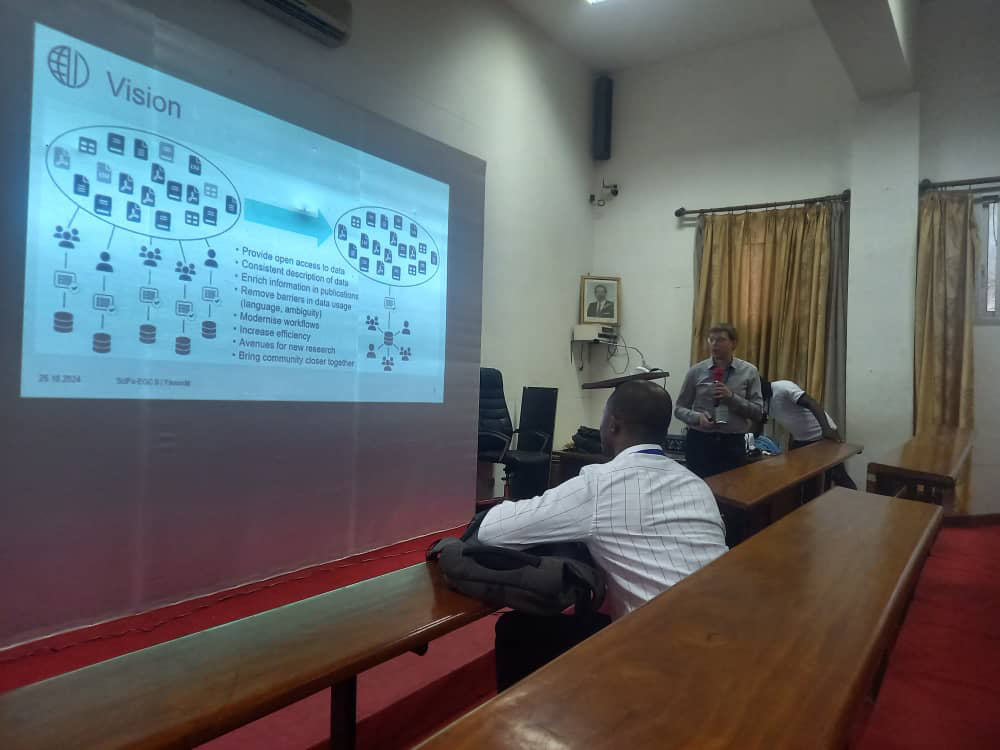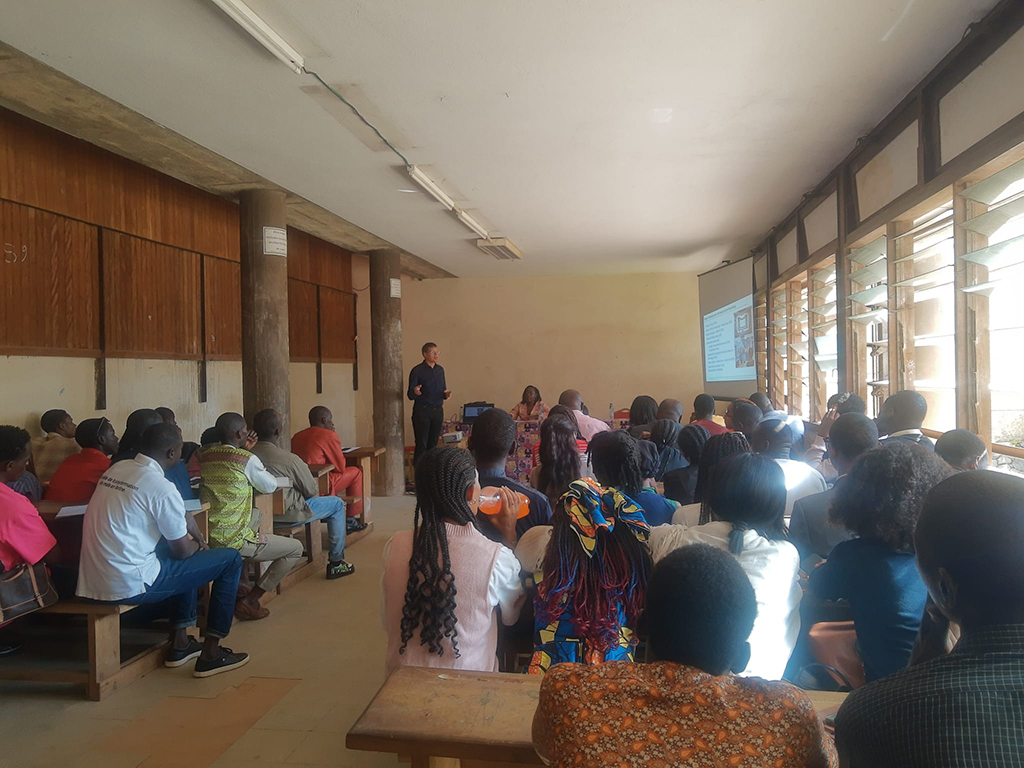TerraLID on the road
In the second half of 2024, TerraLID was presented at several conferences.
European Mineralogical Conference (19–23 August 2024, Dublin)
Every four years, this conference welcomes mineralogists from all European countries and beyond to discuss the newest advances in the field. Traditionally, the conference programme features a session on archaeometry, i.e., the application of mineralogical (and geochemical) methods on cultural heritage materials. The session covered a wide-range of topics, including a presentation about the TerraLID project. The presentation was followed up by various questions and discussions in the coffee breaks with colleagues who were seeking advice on how to manage or publish their research data and the advantages of including TerraLID and its prototype GlobaLID in their resesarch.
Annual Meeting of the European Association of Archaeologists (28–31 August 2024, Rome)
The 30th edition of this meeting marked a new record with more than 5000 participants and 359 sessions. Motivated by the experiences and insights gained while working on TerraLID, Thomas Rose convened the session “Capacity Building for FAIR Data Sharing and Digital Preservation” together Julian Richards (Archaeology Data Service, University of York), Matteo Giaccari (Department of Earth Sciences, Sapienza – University of Rome), Franco Niccolucci (PIN, University of Florence), and Isabella Ercoles (Department of Earth Sciences, Sapienza – University of Rome). The session aimed to bring together colleagues from archaeology, the archaeological sciences and research data management to discuss how to increase the flow of data in the field and promote the use of research data infrastructures.
In about half of the presentations, representatives from national research data infrastructures shared their approaches on data management. Another significant part of the session was devoted to material- or method-focused research data infrastructures such as Nomisma.org and ArqueoData. TerraLID was presented as part of the second group. In addition, some contributions discussed more general aspects such as the automated creation of maps optimised for people with colour vision deficiencies or how open anthropological data should be made accessible in an ethically appropriate way. The session was well-received although delays caused by technical difficulties and the overall tight programme left little time for discussion.
More than other conferences, the Annual Meeting of the EAA is always a more than welcome opportunity to meet friends and colleagues from all over Europe. As in every year, a personal highlight of the EAA was its social programme with the opening reception at Ex Vigna Barberini on the Palatino and a joyful annual party with a live band performing a selection of well-known Italian and international rock and pop songs from the last decades.
Verbandstagung der Altertumsverbände (7–10 October 2024, Bochum)
The joint conference of the antiquities societies in Germany is the central gathering spot for many German archaeologists. This year, the conference’s main topic was digitalisation and digital services in archaeology. TerraLID was presented as part of the main topic’s programme. The conference provided a welcomed opportunity to get in touch with archaeologists and gaining a good overview about comparable initiatives in Germany, although most of the presentations featured tools and projects focused on data recording during excavations.
Young Researchers in Archaeometry (15–18 October 2024, Nicosia)
The Young Researchers in Archaeometry workshops are dedicated to early career scientists. Since its first edition in 2017, the workshop marks the first presentation in front of an international audience for many participants. News from GlobaLID/TerraLID was presented already on several editions and was always met with great interest. The workshop is a great opportunity to meet new colleagues and get an impression about the expectations of early career scientists to modern research tools and data infrastructures. It is therefore an important opportunity to learn about how TerraLID meets their expectations and where adjustments might be necessary to ensure that it stays close to the needs and expectations of the community in the future.
The local organisers at the Cyprus Institute organised a diverse social programme. Its highlight was undoubtedly the archaeological experiment “Food for the Gods: Sacrificial Pyres in the Archaeological Record”, which aims to reproduce the archaeological remains of pyres. The workshop participants were invited to join the burning of the pyre.
Scientific Forum Entangling Geosciences and Chemistry in Cameroon (24–26 October 2024, Yaoundé)
Following an invitation from the former Heinrich Winkelmann fellow Zoila Luz Epossi Ntah-Kroll to present TerraLID as a keynote presentation, the conference provided a more than welcomed opportunity to get in touch with the African community, specifically geoscientists and archaeologists in Cameroon. The general idea of TerraLID was met with a lot of interest. However, with very little non-ferrous metallurgical activities in the past, it’s use for local researchers is rather limited. Nevertheless, the conference yielded many insightful conversations about the everyday challenges faced by local colleagues in conducting research. Moreover, it resulted in a lasting impression about the difficulties in establishing and maintaining laboratories dedicated to the archaeological sciences.
In addition to the conference, Thomas Rose gave a seminar lecture to the archaeology students of the university, presenting research at the Deutsches Bergbau-Museum Bochum and highlighting the potential of scientific methods for understanding past metallurgical processes.

